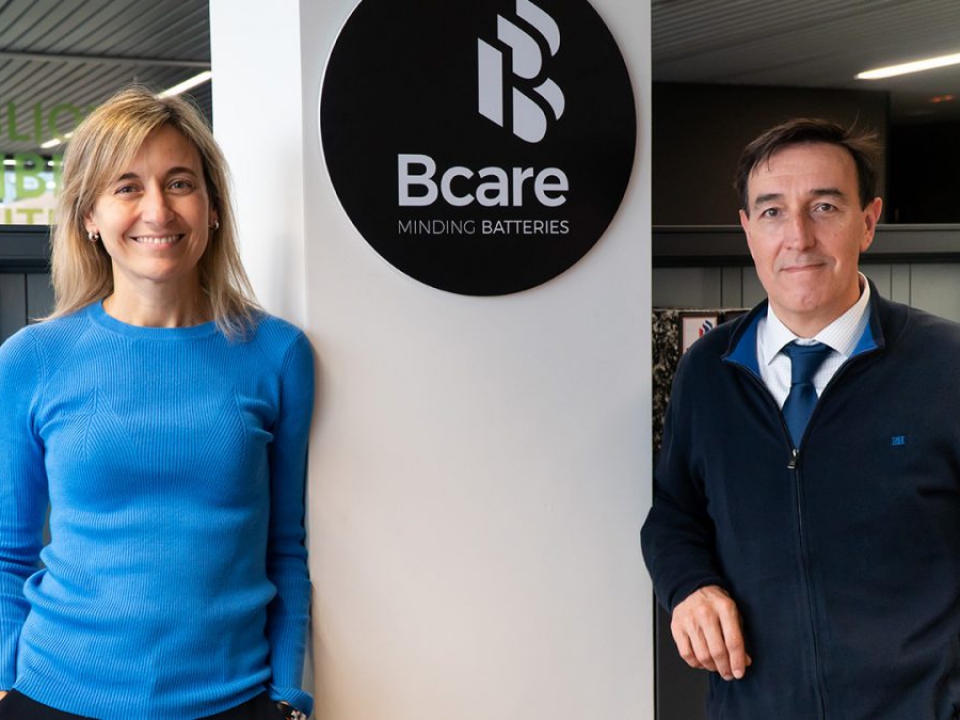BCARE participates in the European project LOLABAT to develop and apply Nickel-Zinc technology in the new high-performance, sustainable and competitive batteries
- The LOLABAT project, in which 17 entities of 7 European countries participate, has been included in the Horizon 2020 program which will receive more than 7 million euros from the European Commission in order to achieve the development of Ni-Zn state-of-the-art batteries.
- BACRE will be in charge of developing the batteries’ state of charge (SOC) and state of health (SOH) diagnosis algorithms.
BCARE, -spin off emerging from CIC energiGUNE in order to offer added value services to the industry on matters of energy storage-, will propel the development of Nickel-Zinc (Ni-Zn) technology applied to state-of-the-art batteries, as part of its roles inside the European consortium LOLABAT. This project, which will receive a 7 million euros grant inside the framework of the EU’s Horizon 2020 program, aspires to position Europe as a global referent in the production of high-performance, sustainable and price competitive batteries through the Ni-Zn technology.
Especifically, BCARE will develop diagnosis models of state of charge (SOC) and state of health (SOH) for their integration in the system of battery management. Furthermore, BCARE will give its support in other phases of the project such as the analysis of the Ni-Zn batteries’ characteristics, regulatory aspects, initial requisites from the BMS point of view, and the development of risk assessment and economic viability (LCCA), for which it will compile and work with information on raw materials, processing and manufacturing of the components of this type of batteries, its integration, manufacturing of the pack, and the analysis of other process protocols, with the goal of comparing them to the current normative aspects.
The project, which will be set in motion this January, has an execution deadline of 39 months. The goal of the consortium is that, during this period of time, the promising abilities of the new chemistry of the Ni-Zn battery will be brought to light, since it has the highest energy densities and highest potencies after the LiB (ion-lithium) batteries and a cost just above the lead-acid batteries.
Moreover, this technology will benefit from the abundant and available raw materials, which count with the advantage of being non-toxic elements, high-security and low risk of thermal leaks, limited environmental impact and high recycling potential. According to the estimations carried out by the coordinators of the project, LOLABAT will tackle the storage requisites of stationary energy developing Ni-Zn with a useful life of 4,000 cycles for 6 cases of use in public service networks and industrial sites.
Ni-Zn technology is, consequently, a clear solution in order for Europe to position itself in the battery market, dominated at present by the American or Asian producers, since it will open doors to a better performance of sustainable and price competitive batteries.
In the LOLABAT consortium there are seven Research and Development institutions represented (SuperGrid, CEA, Stockholm University, the Helmholtz Institute, Cergy University, ZSW and Genova University), six small or medium-sized companies (BCARE, AITEC, Accurec, Optima, InExtenso and Sunergy) and four big companies (EverZinc, EDP, RINA and KME). Its configuration allows having access to a complete value chain, from the access to raw materials, going through the innovative and advanced materials, until the prototyping, production, recycling, second life, life cycle and environment.
How can we help
Interested in working together?
Fill out the following form with information about your project and we will contact you as soon as possible.


